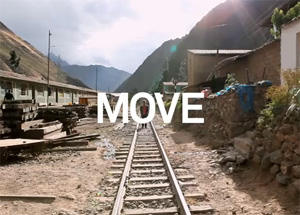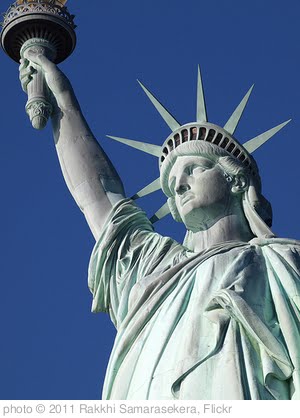Immigration
Occupy Wall Street's struggle for nonviolence. What do marriage and family have to do with economic growth? Map: Protesters' long-term plans for occupying Zuccotti Park. Herman Cain to meet with Arizona sheriff Joe Arpaio over immigration. While corporate profits are at 60-year high, main street businesses continue to struggle.
In our own time the "jobs" rhetoric from both the right and the left ignores the power grabs and power differentials that led to the hemorrhaging of American jobs in the first place. The simple truth is that multinational corporations could make more money for their shareholders by outsourcing jobs to third-world countries so that is what they did.
This was not a moral dilemma for CEOs; it was a "sound business decision." And the gospel according to free-market capitalism (the USA's true religion) preaches that what is good for American business is good for America.
| The Daily Show With Jon Stewart | Mon - Thurs 11p / 10c | |||
| Mexed Out | ||||
| ||||
How ironic that for all the protests going on about unemployment these days that a parallel debate is occurring in our agricultural sector: What to do about a shortage of workers to pick crops or care for livestock on U.S. farms.
Sojourners statement regarding "No More Deaths" report on U.S. Border Patrol abuses: "As a Christian organization, Sojourners believe that all people, regardless of national origin, are made in the "image of God" and deserve to be treated with dignity and respect. We also believe that immigrants are our neighbors and that all life is a sacred gift from God. No More Deaths' report on abuse of immigrants in short-term custody is a chilling reminder that we have a long way to go to affirm a consistent ethic of life in our nation. The overcrowding, physical and psychological abuse, exposure to unsanitary conditions, and denial of food and water to immigrants held in custody of the U.S. Border Patrol must end. As Christians, we insist that all immigrants should be treated fairly and with respect, no matter what side of the border they live on. There are no excuses for such practices to continue, and we call on the Obama Administration to seek accountability for every documented case of abuse by the Border Patrol. The United States should lead by example in all measures of human rights. These numbers offer a stark contrast between the nation we claim to be, built and made better by immigrants, and the nation we are."
Rick Perry was recently asked by a nine-year-old "If you were a super hero, what kind of super hero would you be?" His answer to the child's benign question was simultaneously predictable and profound: Superman.
One little known fact about Houston is that it was the only major city in the South to integrate nonviolently. A meeting was held in a downtown hotel with key African-American leaders -- preachers, business owners, barbers, undertakers -- and the business and political power players from Houston's white establishment. The meeting determined that Houston would integrate silently and sit-ins would end -- no newspaper articles, no television cameras. They were simply going to change the rules of the game; and they did without any violence. It was a meeting that represented how Houston politics happen: provide a room, bring together community leaders, business interests and politicians, and get a deal done. Such meetings certainly make for strange gatherings, but at critical junctures in our city's history this mixture has proven to be a winning cocktail.
There are no whirring helicopters, law enforcement vehicles, or hundreds of federal agents swooping down on businesses as in days of old. Instead, such immigration raids have been replaced by a less overtly brutal approach: "silent" raids, or audits of work eligibility I-9 forms.
But the fear remains.
At the first whisper of an employer receiving notice from U.S. Immigration and Customs Enforcement (ICE) that employees' eligibility records are about to be checked, pulses rise. Legal workers worry about being erroneously bounced out of work; unauthorized employees fear being kicked out of the country and separated from their families. Communities are shaken, business operations are disrupted, and jobs are lost. The anemic economy takes another hit.
Did anyone else get the feeling, as we watched weather reporters wave their arms frantically in swirling motions across oversized maps of the eastern seaboard -- with their eyes bulging as they pushed out whole paragraphs without a single breath for a period -- that this was all hype?
Last weekend, as Irene passed over town after town in the mid-Atlantic, memories of Katrina did not materialize. By the time Irene huffed over New York City on Sunday morning, and the flood of the century was actually just a really big puddle in Battery Park and a floating lifeguard stand in Long Beach, my fear had transformed into complacency. From there I became cynical. By Sunday afternoon I found myself watching the weatherman's bulging eyes as he repeated the mantra of the day: "It's not as bad as we thought it would be, but it's not over." And I thought: "Boy, they'll do anything for ratings."
But it wasn't all hype.
'Silent' raids that drive workers into the underground economy are worse than useless.
[Editors' note: Below is a hymn written by Carolyn Winfrey Gillette to inspire churches to further support and pray for famine relief in Somalia.]
O God, You Love the Needy
7.6.7.6 D LLANGLOFFAN ("Rejoice, Rejoice, Believers")O God, you love the needy and care for all the poor!
Today our hearts are heavy with news of drought and war.
When plantings yield no harvest, when hungry people die,
When families flee, defenseless -- Lord, hear your people's cry!
I admit it: A few years back, when I first heard about the E-Verify program, I thought it sounded reasonable. The program was described to me as a way for employers to voluntarily verify the U.S. citizenship of their employees by cross-checking their information with the online databases of the Department of Homeland Security and the Social Security administration. I knew that there were flaws in the system, which sometimes misidentified workers as undocumented even when they were not. However, I thought, what employer doesn't deserve the right to check the employment eligibility of his or her workers?
When the Alabama legislature passed their infamous, anti-immigrant law (HB 56), the religious community in the state immediately cried foul. Jim Wallis and other national leaders condemned the law as unjust and immoral.
HB 56, which will go into effect September 1, attacks virtually every aspect of immigrants' lives. Among many punitive measures, it authorizes police to detain anyone they suspect is undocumented, mandates criminal penalties for those who transport undocumented migrants, and demands that public schools determine the immigration status of all students.
Similar to many of my Western counterparts, my first thoughts when I first heard about the attacks in Norway went to extreme Islamic terrorism. I had heard about the growing tensions in Scandinavia because of the increasing Muslim population and cultural shifts arising as a result. Thus, when I heard through a friend that a Norwegian school had been attacked, I assumed the attack to be a response from a Muslim terrorist group. I asked if it was al Qaeda or such other organization. My friend responded, "Probably." Thus, you can imagine my surprise when I saw the picture of the suspect who appeared very Scandinavian with fair skin and complexion.
According to the New York Times, the attacks in Oslo killed at least 92 people and the orchestrator left behind "a detailed manifesto outlining preparations and calling for Christian war to defend Europe against the threat of Muslim domination." If I had read that statement out of context, I would think one was talking about the Christian Crusades of the 12th century.
When John Steinbeck's classic novel The Grapes of Wrath was published in 1939, it caused a sensation. It won the Pulitzer Prize and was the best-selling novel of the year. Just months later, in 1940, the book was turned into a film by John Ford, which was nominated for seven Academy Awards.
For readers today, Steinbeck's migration saga remains relevant as a piece of (dramatized) social analysis. It's essentially a road novel about the Joads, a poor Midwestern migrant farming family. Throughout the novel, the Joads fight to keep their family intact while fleeing the 1930s Oklahoma Dustbowl for the hope of farm work in California.
[Editors' note: As part of Sojourners' campaign to end the war in Afghanistan, we will run a weekly blog about issues in Afghanistan to educate our readers about the latest news and developments related to the war, the U.S. military's strategy, and the people impacted by our decisions. Read more about our campaign at www.sojo.net/afghanistan.]
The United States government has quietly terminated a popular exchange program for high school students from Afghanistan after numerous participants fled to Canada as refugees rather than return home.
The program, the State Department's Youth and Exchange Study (YES), was established in 2002 to provide scholarships to students from countries with significant Muslim populations, and "allows participants to spend up to one academic year in the U.S. while they live with host families, attend high school and learn about American society and values." In 2007, YES Abroad was established to provide a similar experience for U.S students in selected YES countries.
"I will call them my people, who were not my people. And her beloved, who was not beloved." (Romans 9:25 referencing Hosea 2:23)
Estranged, alienated, and removed; anyone living in an industrialized modern society in the 21st century would be able to define, or at least identify the sentiments of these words. Our time is one of mass communication and instantaneous access to knowledge. And yet our lives are too compartmentalized, increasingly divided, and our society reflects this. Indeed the existential writers of yesteryear were correct in diagnosing the iron cage that would befall us, ultimately leading to an eclipse of reason.

- How do you like your chocolate chip cookies? (Personally, I prefer thick, chewy, and not too sweet.)
- Are you a stay-at-home dad?
- Learn more about new media and faith.
- Religious groups are part of the suit against Alabama immigration law (hat tip: CCIR).
- The changing face of AIDS.

